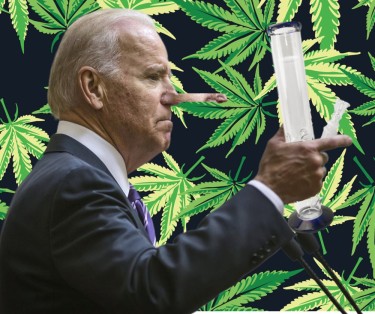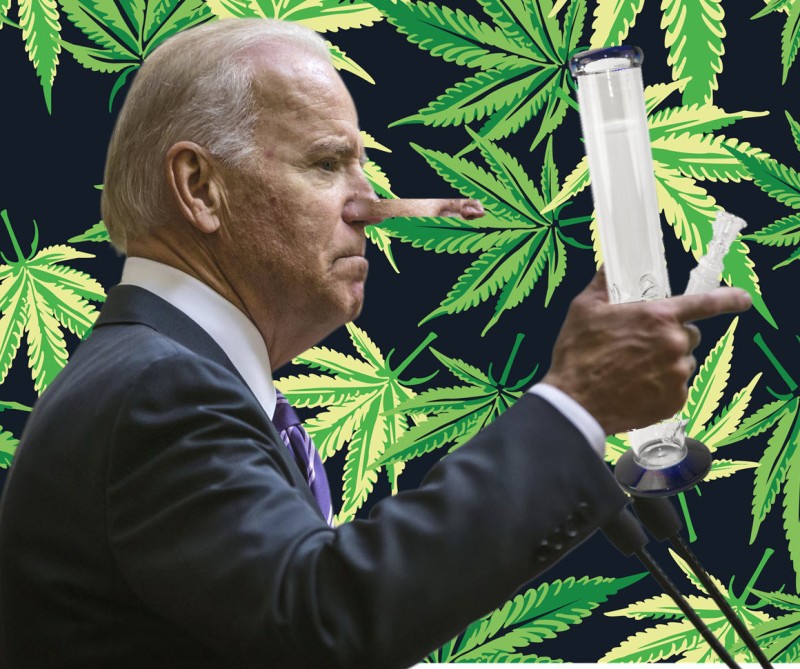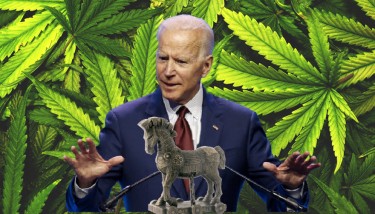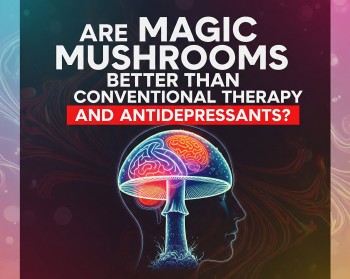
Proponents of cannabis free market principles, the American Cannabis Collective (ACC), voiced dissatisfaction with President Joe Biden's lack of action to address federal cannabis legislation and campaign pledges.
Co-founder of the ACC Don Murphy chastised Biden for ignoring the voters that backed his presidential campaign, especially those from Black and Brown neighborhoods who were severely damaged by the War on Drugs. Even though Biden's administration promised to stop making arrests for simple possession, the War on Drugs is still being enforced via these laws.
Carl Cameron, a co-founder of ACC, denounced the administration's reference to "cannabis pardons," claiming it's just hyperbole with no practical significance. Because Biden's October 2022 pardon did not release any prisoners and did not have jurisdiction over state-level drug charges, the ACC believes it was unsuccessful.
Another ACC co-founder, Gretchen Gailey, emphasized the strong popular support for legalizing cannabis, citing a recent Gallup Poll that indicated 70% of respondents approved, the greatest level of support the poll has recorded since it began monitoring the topic in 1969.
Gailey criticized Biden's vague promises, emphasizing the urgency to prioritize the 400,000 cannabis industry workers and patients over empty rhetoric. The ACC urges the administration to take concrete actions to address federal cannabis policy and honor campaign commitments.
President Biden’s Words vs Action/Actual Impact
In his final State of the Union address before his upcoming reelection campaign, President Joe Biden announced his directive to his Cabinet to reevaluate the federal classification of marijuana.
Referencing his previous proclamation for mass cannabis pardons, Biden asserted his efforts to expunge thousands of convictions for mere possession, emphasizing his belief that no one should face incarceration solely for using or possessing cannabis.
While the president has frequently touted the thousands of pardons granted through proclamations in 2022 and 2023 in various speeches, addressing the issue during the annual prime-time event carries significant significance.
However, as Biden is known to do, his statements may overstate the impact of the pardons, as they did not expunge criminal records but rather served as symbolic forgiveness.
Advocates have consistently pointed out that pardons for simple possession did not result in the release of individuals from federal prison. Additionally, many non-violent marijuana offenders remain incarcerated, as they were not covered by the clemency action.
Nevertheless, by highlighting this action in front of the nation, the president's gesture holds political weight, particularly in the lead-up to the November election. It signals an acknowledgment of the growing popularity of cannabis reform from the White House during a pivotal period.
Just Another Campaign Strategy?
According to recent research, President Biden's stance on marijuana might increase support for him come election season in November. Once respondents were informed about the possible rescheduling of cannabis under Biden's launched study, the president's favorability ratings significantly increased, according to the survey.
The Controlled Substances Act (CSA) should reclassify cannabis from Schedule I to Schedule III, according to a recommendation made by the Drug Enforcement Administration (DEA) and the U.S. Department of Health and Human Services (HHS) following assessment.
While this prospect appears to positively influence public opinion of Biden, advocates emphasizing equity note that rescheduling would not legalize marijuana nor address the longstanding harm caused by prohibition. However, it would enable state cannabis businesses to access federal tax deductions currently restricted under IRS code 280E.
The decision on whether the DEA will adopt the HHS recommendation remains pending, with speculation that an announcement may occur before the election, although the timeline remains uncertain.
Calls for marijuana rescheduling have been amplified recently by coalitions representing military veterans and law enforcement, including a group that includes DEA Administrator Anne Milgram.
Rep. Barbara Lee (D-CA), co-chair of the Congressional Cannabis Caucus, expressed her opinion that more mercy must be granted in order to address the consequences of the war on drugs in relation to the pardons granted by the president.
But Biden's acts of mercy were hailed by former Colorado representative Ed Perlmutter (D-CO), who described them as daring moves.
Sen. John Fetterman (D-PA), however, objected, saying it was incorrect to deny military people relief. This was after the U.S. Army made it clear that marijuana possession offences under the military drug code were not covered by the president's pardons.
The office of Vice President Kamala Harris has been actively contacting individuals who have received pardons for marijuana possession. They are ensuring that the Justice Department's certification process is progressing smoothly and are engaging in broader conversations regarding cannabis policy reform.
Advocates Urge Biden Administration to Translate Words into Action
While President Biden's rhetoric on cannabis reform has generated hope among supporters, advocates are calling for tangible actions to match his promises. Despite the mention of reviewing federal marijuana classification and pardoning convictions for possession, critics argue that these efforts fall short of addressing the systemic issues perpetuated by cannabis prohibition.
In order to address the disproportionate impact of marijuana enforcement on vulnerable populations, the American Cannabis Collective (ACC) and other advocacy groups stress the urgent need for real policy changes, including legalization, the erasure of criminal records, and complete reforms.
A growing number of stakeholders are pleading with President Biden to give priority to substantive reform that reflects the desire of the American people and corrects historical injustices, as the administration is under increasing pressure to fulfill its campaign promises.
Bottom Line
Concerning cannabis reform, proponents like the American Cannabis Collective (ACC) are disappointed that President Biden has not acted in accordance with his statements. Supporters are frustrated because Biden's administration has not produced significant change despite campaign promises and vows to amend federal law. Advocates emphasize how critical it is to go from talk to substantive action as the November election approaches. They stress the significance of tackling structural problems caused by the prohibition of cannabis, such as its disproportionate effects on underprivileged groups. Proponents want the administration to implement comprehensive changes, such legalization and the erasure of criminal records, in order to give the needs of patients and workers in the cannabis business top priority. The fact that Biden has not followed through on his campaign commitments highlights the necessity of real progress in reforming cannabis laws.






